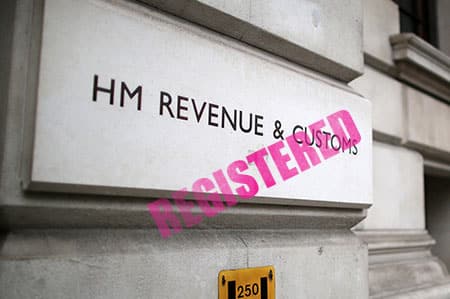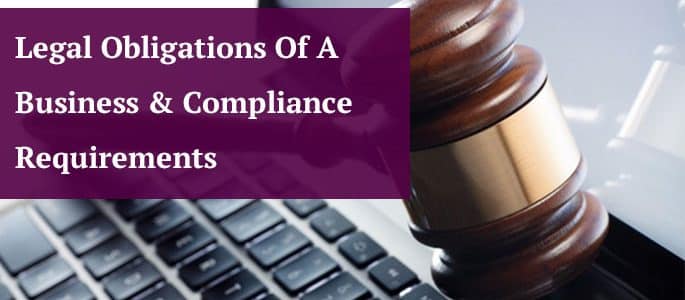Legal Obligations of a Business and Compliance Requirements
Stephen Avila
In this guide we look at the legal obligations of a business and the related compliance requirements that a business needs to consider.
Business Structure Compliance Issues
Depending on what structure your business takes you will be subject to certain legal obligations and requirements.
If you operate as a sole trader, then the compliance requirements will be less rigorous than if you operate as a company. However, there are many advantages to structuring a new business in the form of a limited company.
Assuming that you set up your business as a limited company you will need to ensure that the company, and its directors, comply with the requirements of the Companies Act 2006. Key legal obligations for the company and its directors include:
- Operate the company in accordance with its articles of association.
- Keep the company records up to date.
- Keeping statutory registers or company books: the Companies Act requires that all companies must keep a record of certain matters. Read our post ‘6 Key company record keeping obligations’ for more information.
- File your company accounts and corporation tax return.
- Add the full company name, company number and its registered office to the company website, email footer and headed letters where these are used. For more details on this, see the government website’s article.
Failure to comply with the above business legal and compliance obligations would expose the company to a fine.
You should also bear in mind that if your business is required to be a registered with a regulatory body, for example The Financial Conduct Authority, then you must also include details of the registration on the website and on all business stationery.
Requirement To Register with HMRC
It is a legal requirement that all businesses register themselves with HMRC for corporation tax. They must then file a corporation tax return each year. The specific requirements for the registration
If a business generates more than £85,000 in revenue (i.e. turnover) a year, then it must also charge VAT on the products or services that it supplies (unless it can take advantage of a VAT exemption).
Certain goods and services are not subject to VAT and you can find out full details on these at https://www.gov.uk/guidance/vat-exemption-and-partial-exemption.
Businesses’ Employment Law Obligations
If your business employs staff, then you must comply with certain legal obligations that arise under various employment-related laws. Your business must provide all of its employees with a written statement of the main terms of their employment. These must include:
- A description of their role.
- The amount of pay.
- Working hours.
- Holiday entitlement.
- Sick pay entitlement.
An employer must provide this information to the employee within two months of their starting with the business. If a business fails to provide its employees with the required information, then they are liable to a fine. The fine is to up to four weeks of the employee’s pay.
The written terms can be included in any form, but we recommend using a full employment contract. Ideally you should also put in place an HR handbook, which sets out the company’s policies on employment-related matters more fully.
Health and Safety Legal Obligations
If your business will employ staff or contractors, or receive visitors, then, in addition to employment law obligations, t
All workers, whether employed or self-employed, are entitled to work in a safe environment. The requirements for complying with this obligation are very broad.
Essentially an employer must do whatever is reasonably necessary to ensure the safety and welfare of their workers. There are however two specific points that an employer needs to cover to meet this obligation:
- The employer must be able to demonstrate that they have assessed the risks that employees face in the workplace. You can achieve this by putting in place a health and safety risk assessment.
- The employer must be able to demonstrate that it has given all workers:
-
- details of any risks within the workplace; and
- information on how the employer seeks to minimise risks to a worker’s health and safety.
This can be done by putting in place a health and safety policy.
Fire Safety
In addition, if your business has premises and you employ staff, then you need to consider fire safety and the obligations imposed by the Regulatory Reform (Fire Safety) Order 2005. Compliance with this legislation requires that all businesses with premises install and maintain a fire protection system. This means as a minimum that you must have fire extinguishers available on the premises. In addition, you need to carry out and keep a written fire risk assessment. You should also appoint a fire marshal and establish an office evacuation procedure.
Insurance Legal Obligations for Businesses
If your business has employees, then it is a legal requirement to have employer’s liability insurance. If you have premises where non-employees may visit, then it is also a requirement to have public liability insurance. It is also very sensible to have PI insurance, but not a strict legal requirement.
Data Protection Compliance
The General Data Protection Regulations (GDPR) came into force in May 2018. They impose strict legal obligations and compliance requirements on all businesses that collect personal data of any sort.
GDPR requires that a business is able to demonstrate that it can rely on one of 7 lawful grounds for collecting and processing personal data and that it does so in accordance with the data protection principles set out by GDPR.
This is a detailed area of the law with numerous compliance requirements and we recommend that you read our guide to GDPR for businesses to assist you in meeting all of the legal obligations imposed by this legislation. If you need GDPR documentation, you can find all of our GDPR templates in our GDPR Compliance Kit.
Legal Obligations of a Business if You Sell to Consumers
Any business that sells products or services to “consumers”, i.e. people that are not buying from you in the course of their business, must comply with The Consumer Contracts (Information, Cancellation and Additional Charges) Regulations 2013.
These regulations require that any business that sells to a consumer puts in place written terms of sale and provides certain information to all consumer customers.
The written terms must then meet certain compliance requirements. These include:
- the requirement to provide a clear refund policy, and
- the ability for the consumer to cancel the purchase (there are some exceptions to this obligation).
If your business sells to consumers, then you should ensure that you are familiar with these legal obligations.
Corporate Governance Policies
Large commercial organisations (companies and partnerships) based in the UK must comply with the requirements of the Modern Slavery Act 2015. This will not apply to most our our readers as the requirement is that businesses with an annual turnover greater than £36,000,000 must publish a modern slavery statement.
However, the legal obligation extends to making sure that each business in your supply chain also complies with the legislation. So you need to consider this if your business will supply a business whose turnover exceeds £36,000,000. That widens the net quite a lot.
Website Legal Obligations of a Business
A final area for compliance that must be considered is the legal requirements of a business website in the UK.
There are several pieces of law setting requirements that a business with a website must comply with. The compliance requirements are set out in detail in our guide to website legal requirements.
Legal Obligations of A Business
By ensuring you consider the duties of a business, you will protect your business from fines. Business insurance will not cover such fines. Good compliance is a key part of running a successful business.
Take Action to Get Compliant!
Look no further than our Business Compliance Discount Package for the documents that you need to cover your business’s legal obligations.
If you need further help with your legal compliance problems, do use our Find A Solicitor service.
Get Legal & Compliance tips straight to your inbox, free!
"*" indicates required fields

